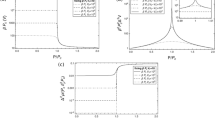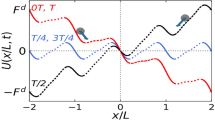Abstract
THE existence of particles intermediate in mass between protons and electrons has been shown in experiments on the cosmic radiation1. Since at present so little is known concerning the properties of these particles, for example, the exact value of the mass, the laws governing their production, their stability against disintegration, etc., it may yet be too early to assign to them a name. But inasmuch as several names have already been suggested, namely, dynatron, penetron, barytron, heavy electron, yukon and x-particle, it may be wise to consider the matter at this time.
This is a preview of subscription content, access via your institution
Access options
Subscribe to this journal
Receive 51 print issues and online access
$199.00 per year
only $3.90 per issue
Buy this article
- Purchase on SpringerLink
- Instant access to full article PDF
Prices may be subject to local taxes which are calculated during checkout
Similar content being viewed by others
References
For historical summary see Wentzel, G., Naturwiss., 26, 273 (1938); and Bowen, Millikan and Neher, footnote, Phys. Rev., 53, 219 (1938).
Author information
Authors and Affiliations
Rights and permissions
About this article
Cite this article
ANDERSON, C., NEDDERMEYER, S. Mesotron (Intermediate Particle) as a Name for the New Particles of Intermediate Mass. Nature 142, 878 (1938). https://doi.org/10.1038/142878c0
Published:
Issue date:
DOI: https://doi.org/10.1038/142878c0
This article is cited by
-
A terminological history of early elementary particle physics
Archive for History of Exact Sciences (2023)



